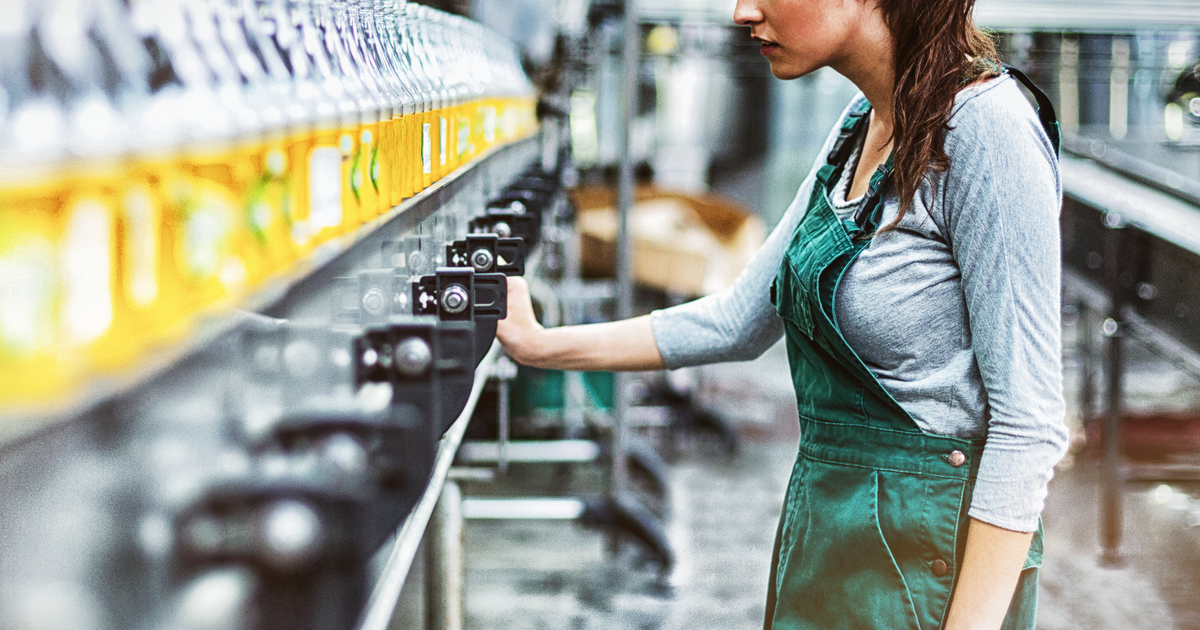The food and beverage industry is a dynamic and ever-evolving sector, encompassing a wide range of sub-industries, each with its unique challenges. Within this diverse landscape, batch and process manufacturers are continually seeking ways to boost efficiency, reduce costs, and meet consumer demands. The secret ingredient to their success? Enterprise Resource Planning (ERP) systems that streamline business processes and operations.
The food and beverage industry: A multi-faceted landscape
The overarching category of food and beverage includes a multitude of sub-industries, such as:
- Dairy: Includes the production of milk, cheese, yogurt, and other dairy products.
- Bakery: Involves the creation of bread, pastries, and other baked goods.
- Meat & Poultry: Focuses on the processing of various meats, poultry, and meat-based products.
- Beverages: Covers the manufacturing of soft drinks, alcoholic beverages, and a wide variety of non-alcoholic drinks.
- Snack Foods: Encompasses the production of snacks, including chips, nuts, and other on-the-go treats.
- Frozen Foods: Includes the creation of frozen meals, fruits, vegetables, and more.
- Confectionery: Involves the production of candies, chocolates, and other sweet treats.
Each sub-industry presents its unique challenges, from managing perishable ingredients in dairy to ensuring consistent product quality in confectionery.
Let’s explore how ERP systems are transforming the food and beverage manufacturing landscape, irrespective of the specific sub-industry. Batch and process manufacturers in the food and beverage industry face a number of unique challenges, including:
- Complex supply chains: Food and beverage manufacturers typically have complex supply chains that involve multiple suppliers, processors, and distributors. This can make it difficult to track inventory, manage production, and ensure that products are delivered to customers on time and in full.
- Perishable products: Food and beverage products are perishable, so it is important to minimize waste and ensure that products are fresh when they reach consumers. This requires careful planning and management of the supply chain.
- Food safety regulations: Food and beverage manufacturers are subject to strict food safety regulations. This requires them to have a robust quality control system in place and to be able to trace products from farm to fork.
Enterprise resource planning (ERP) software can help batch and process manufacturers in the food and beverage industry to address these challenges by providing a single, integrated platform for managing all aspects of their business, including their supply chain.
Take a deeper dive into some specific ways that ERP can help batch and process manufacturers in the food and beverage industry to become more efficient and save money.
Batch and process efficiency
Food and beverage plants involve both batch and process-based manufacturing. For example, baked goods are made in batches while dairy products involve more continuous process operations. An ERP system brings visibility across disconnected tasks and allows manufacturers to identify bottlenecks in production cycles. It integrates mixing, cooking, processing, packaging and labelling under one platform to improve batch scheduling and process flows. This streamlines changeovers, provides real-time productivity insights, and reduces cycle times.
Inventory management
Ingredient inventory management is a major task considering the volume and variety of components used in food and beverage products. ERP tools feature inventory control functions like shelf-life tracking, batch number tracking, and replenishment automation based on stock levels and consumption. This improves ingredient freshness, reduces wastage due to spoilage, and optimizes ingredient procurement and ordering.
Food safety and compliance
Adhering to food safety norms and quality checks is critical for food manufacturers. ERP solutions facilitate compliance by digitizing procedures, standardizing production protocols, monitoring employee sanitation, recording equipment calibration, tracking quality test results, and providing recall traceability if required. This helps demonstrate regulatory compliance and meet audit requirements.
Optimizing supplier collaboration
Strong relationships with suppliers are a cornerstone of success in the food and beverage industry. ERP systems facilitate improved communication and collaboration with suppliers. Manufacturers can obtain real-time updates on shipments, negotiate pricing more effectively, and predict delivery schedules with greater accuracy. This streamlined collaboration enhances efficiency and curbs procurement costs.
Waste reduction
ERP identifies areas of wastage across production, storage, and delivery and enables root cause analysis. This could involve spillage, incorrect ingredients, equipment malfunctions, improper storage temperatures, etc. With detailed visibility into losses and waste, preventive steps can be taken through process improvements, staff training, enhanced quality control, and maintenance reforms. These measures translate into higher yields and reduced wastage costs.
S&OP and demand planning
Sales and operations planning tools in ERP use historical manufacturing data, sales forecasts, inventory levels, and customer orders to create demand forecasts. This allows optimized demand-driven production planning, inventory optimization, and workforce scheduling to cost-effectively meet changing customer needs. Accurate demand projections lower production and inventory carrying costs.
Reporting and analytics
ERP software consolidates data from across the plant onto a single platform. Advanced reporting and analytics give real-time insights into OEE, product costs, operational costs, margins, profitability, resource utilization, and other KPIs. This enables data-driven decision-making to cut excess costs in manufacturing, inventory, labor, maintenance, and other overheads.
ERP solutions are invaluable for food and beverage companies to optimize convoluted production processes, reduce waste, improve agility, increase efficiency, and drive profitability through lean operations. The right ERP partner with industry expertise can help manufacturers accelerate their digital transformation.
If you are in the process of looking for your first ERP or a replacement, Deacom ERP should be at the top of your list. It has been built specifically with process manufacturers in mind and tailored to fit the needs of the food & beverage industry. To learn more about how Deacom can help you on your journey, click HERE to start your exploration.

